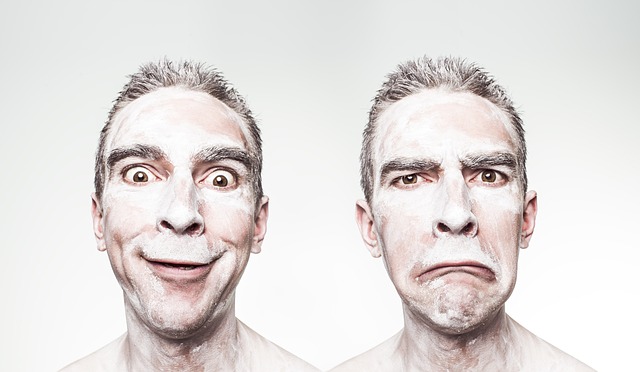Hair shedding is normal and part of the natural hair growth cycle.
It becomes a concern when shedding is excessive. Seeing your hair in your brush, shower, or pillow can be distressing.
Hormonal changes, nutritional deficiencies, genetics, lifestyle, and medical conditions, can become the reason for your hair fall.
According to a study, individuals who smoke cigarettes are more prone to excessive hair shedding.
Understanding the potential causes of hair fall can help you identify and address the underlying issues.
It also helps in taking steps to promote healthy hair growth.
This article explores some common reasons hair sheds excessively and provides insights on managing it.
Why am I shedding so much hair?
Severe shedding, or Telogen Effluvium, is a symptom of an underlying health condition.
However, it can take some time for you to notice the signs.
Hair growth is a cycle; it develops, slumbers, and then sheds. Every hair is at a different cycle stage at any given time.
The cycle requires time, according to dermatologist Shilpi Khetarpal, MD.
Therefore, any significant shedding occurring today is a direct effect of three months ago.
Several factors can contribute to excessive shedding. Here are a few factors that can lead to hair shedding,
Lack of nutrients
Hair thinning or loss can indicate a vitamin and mineral deficiency.
Biotin is a form of Vitamin B that is necessary for your hair. Lack of this vitamin has been associated with hair.
According to dermatologists, including red meat can help your hair. Iron, abundant in red meat and other animal diets, aids hair and body growth.
Lack of iron in the diet can exacerbate anemia, which is more common in women because of menstrual blood loss.
Other nutrients like Zinc and protein can also help with your hair shedding.
Certain medications
There are a lot of medicines that can lead to hair fall.
Medicines for arthritis, depression, gout, heart disease, and high blood pressure can result in hair shedding.
Sometimes doctors prescribe medicines like Finasteride or Minoxidil and other treatments to help you counter the side effects.
Both medicines are widely prescribed for treating hair loss. Your doctor may prescribe them depending on your condition.
Stress
Extreme stress can trigger an immune system attack on hair follicles, causing hair loss.
Stress and anxiety can reduce the rate of hair growth, which increases shedding when you brush.
Pregnancy
After giving birth, new moms can experience increased hair shedding, which generally peaks around four months postpartum.
However, most women regain average hair growth once the child turns one.
If, after one year, your hair has not returned to its usual fullness, check with a doctor, as they can help you with it.
Hormonal imbalance and menopause
Hair loss is a common menopausal symptom.
The change in Estrogen and Progesterone levels in the body can lead to hair shedding.
Besides hair loss, here are a few more symptoms of menopause:
- Night sweats
- Irregular menstrual cycle
- Dry skin
- Dry vagina
- Weight gain
The extra strain on the body would make shedding even more severe.
Some women may experience thinning and loss even after stopping hormone-based birth control.
It happens because of the changes in Estrogen and other hormones, which can interrupt the hair lifecycle.
What can I do to stop hair shedding?
Hair shedding may not seem severe, but it can indicate something serious.
It is crucial to address the underlying cause to stop your hair loss. Consult a doctor for the correct diagnosis and treatment.
If your shedding is due to something that can be treated without medicines, they may suggest lifestyle changes. They may ask you to switch diet, exercise, etc.
Foods are rich in nutrients like biotin, Zinc, iron, and protein.
These food include eggs, fish, nuts, seeds, leafy greens, and legumes, which can help promote healthy hair growth and reduce hair shedding.
If your hair loss can be treated with medicines, your healthcare provider can recommend Finasteride or Minoxidil.
Severe hair loss may need procedures like hair transplant or micro-needling.
In most cases, the hair loss can be reversed; discuss your options with a doctor.
Conclusion
Excessive hair shedding can happen due to various factors such as hormonal changes, genetics, medical conditions, and lifestyle factors.
Certain medicines that treat arthritis, depression, gout, etc., can lead to hair loss as a side effect.
Stress and improper nutrition are also one of the significant contributors to it. Menopause or
Childbirth can also be a reason for your shedding.
Identifying the underlying cause is crucial for proper management.
Seeking professional advice and changing diet, lifestyle, and hair care routines can help reduce hair shedding and promote healthy hair growth.
Frequently Asked Questions
How can I stop my hair from shedding so much?
To reduce hair shedding, consider addressing potential underlying causes such as hormonal imbalances, nutritional deficiencies, and lifestyle factors. Eating a balanced diet, managing stress, and hair care practices can increase healthy hair growth and decrease shedding.
Why am I shedding more hair than usual?
Various factors, including hormonal changes, nutritional deficiencies, genetics, lifestyle, and medical conditions, can cause excessive hair shedding. Identifying the underlying cause through medical evaluation and addressing it accordingly can help reduce hair shedding.
When should I be worried about excessive hair shedding?
You should be concerned about excessive hair shedding if it persists for an extended period. Checking with a healthcare professional for proper evaluation and guidance is best.
How can I reduce shedding naturally?
Regular scalp massages, a balanced diet with adequate nutrients like biotin and zinc, gentle hair care practices, avoiding heat styling tools, and staying hydrated can help reduce hair shedding naturally.
What foods stop hair shedding?
Foods are rich in nutrients like biotin, Zinc, iron, and protein. These food include eggs, fish, nuts, seeds, leafy greens, and legumes, which can help promote healthy hair growth and reduce hair shedding.
